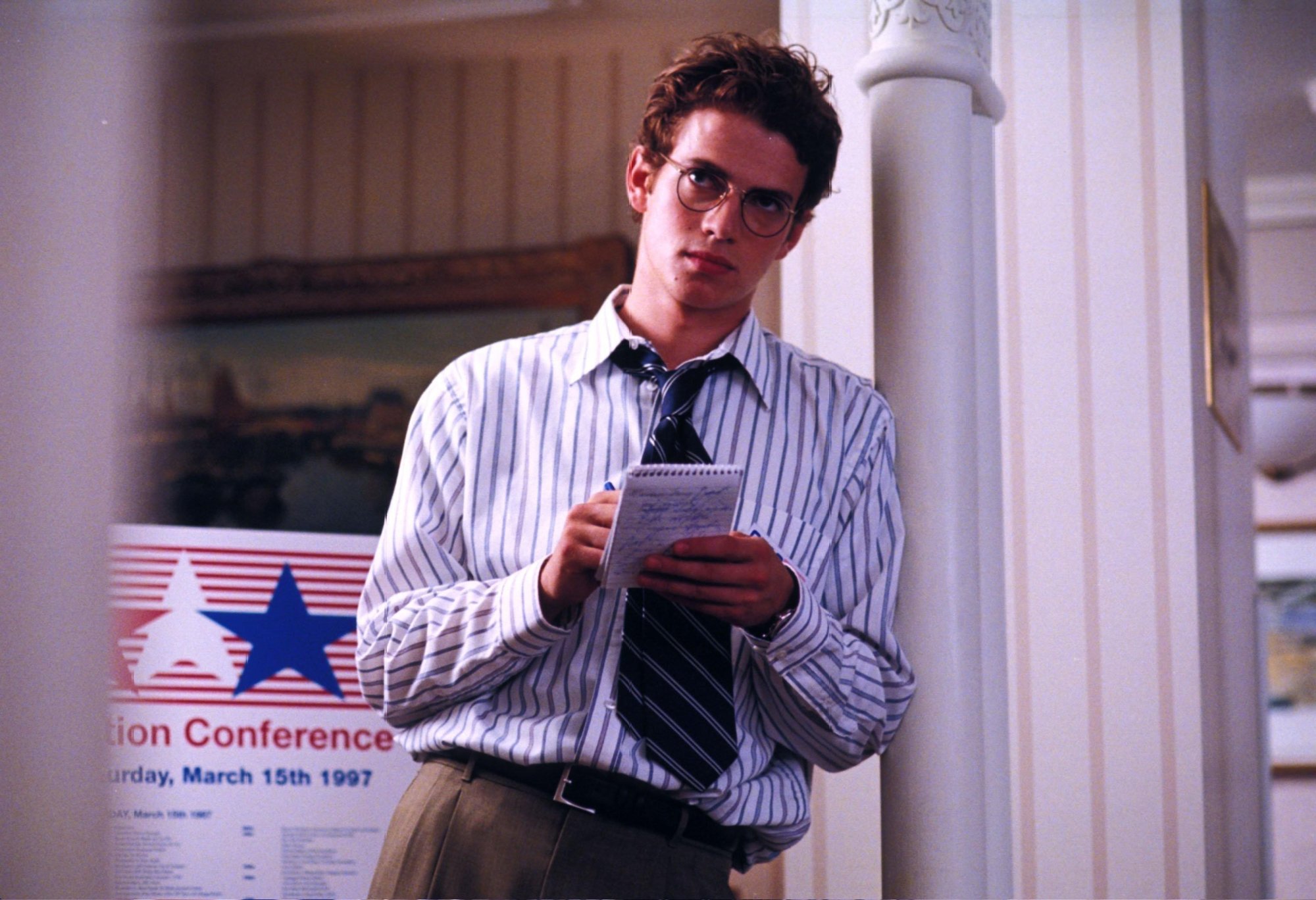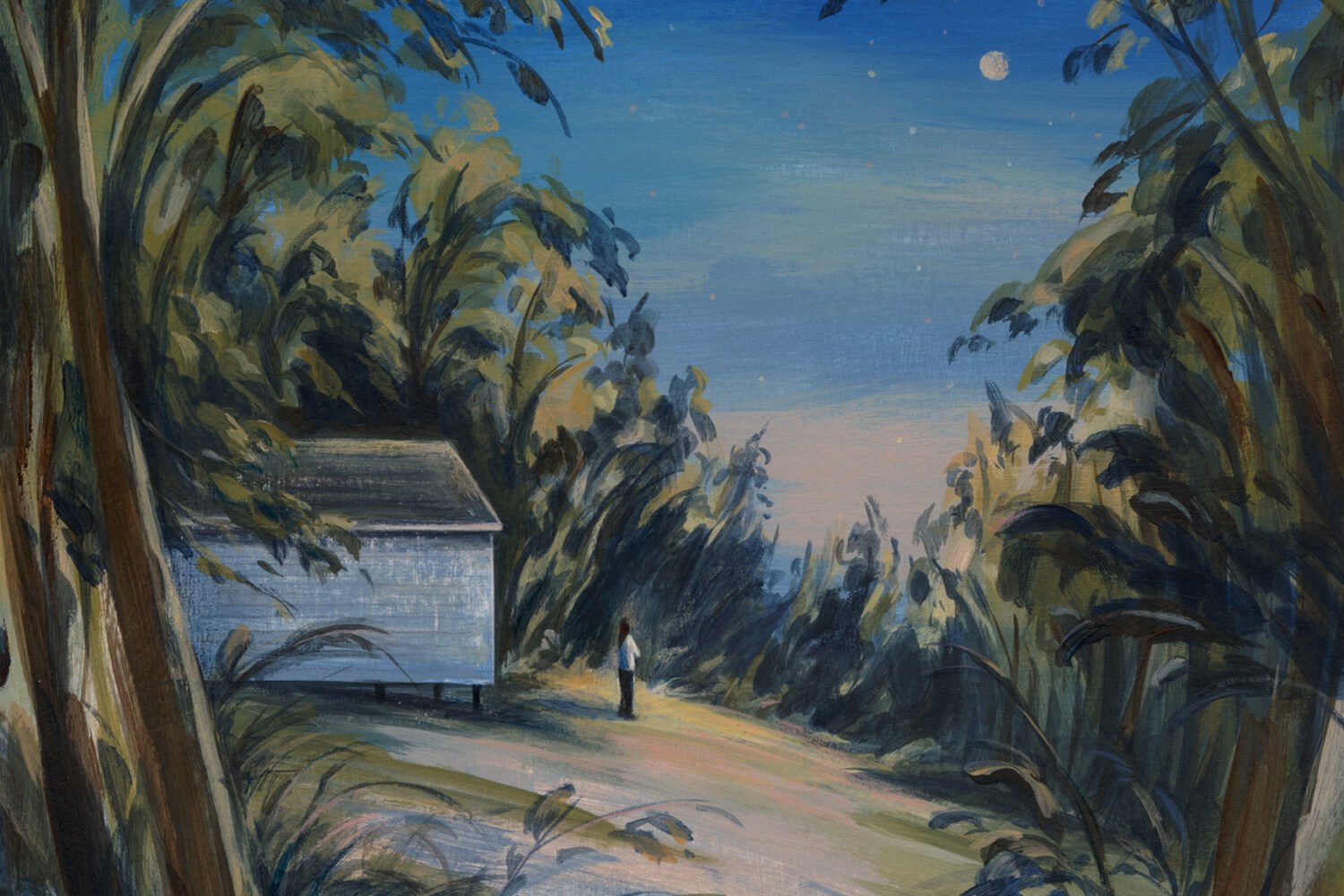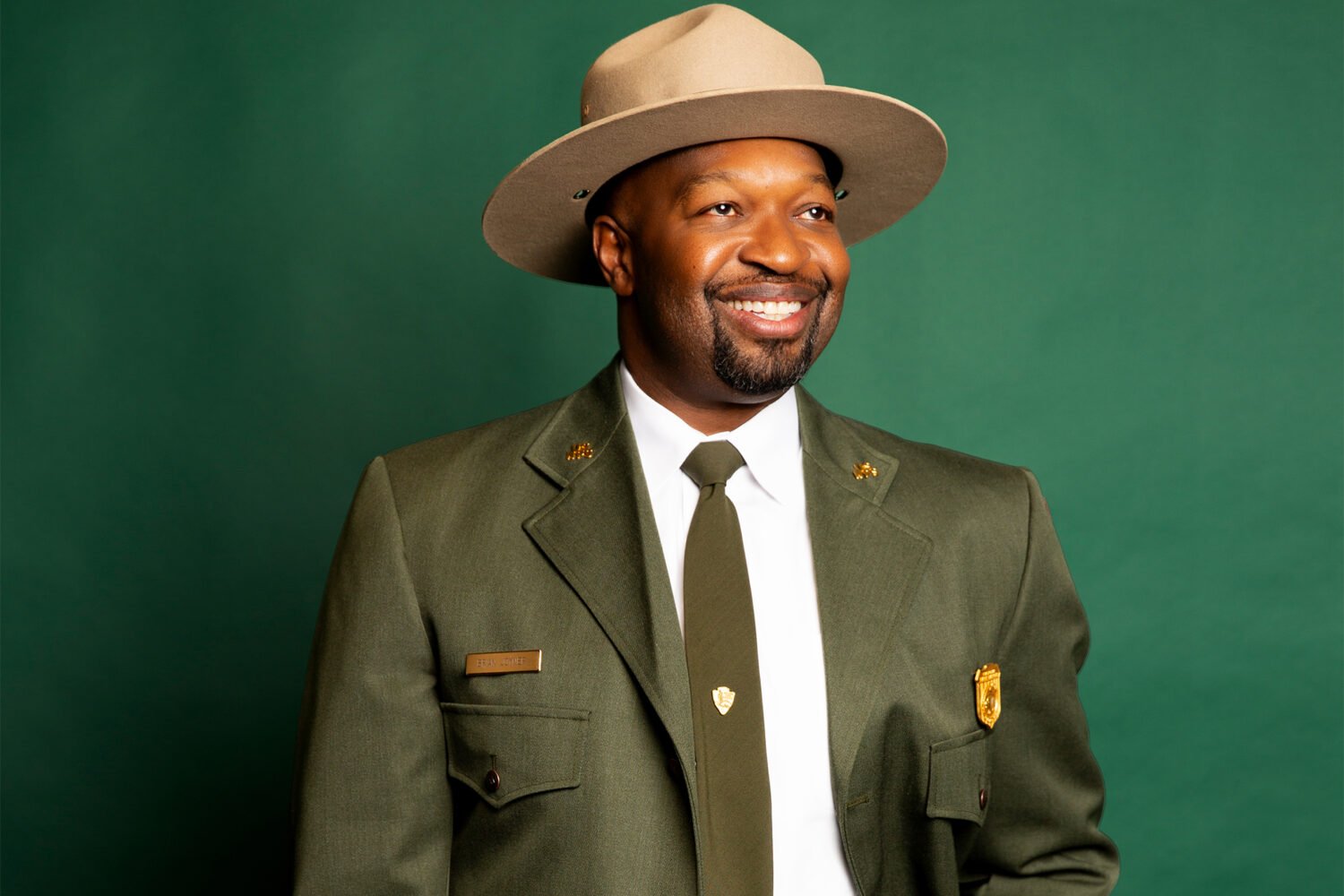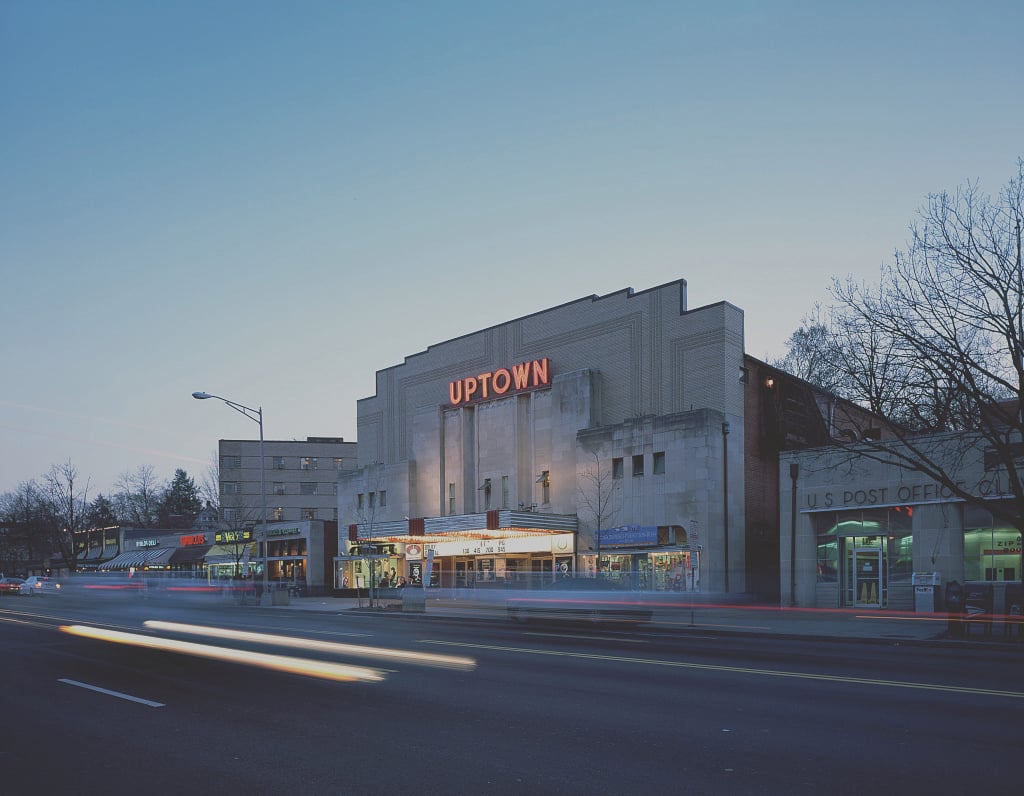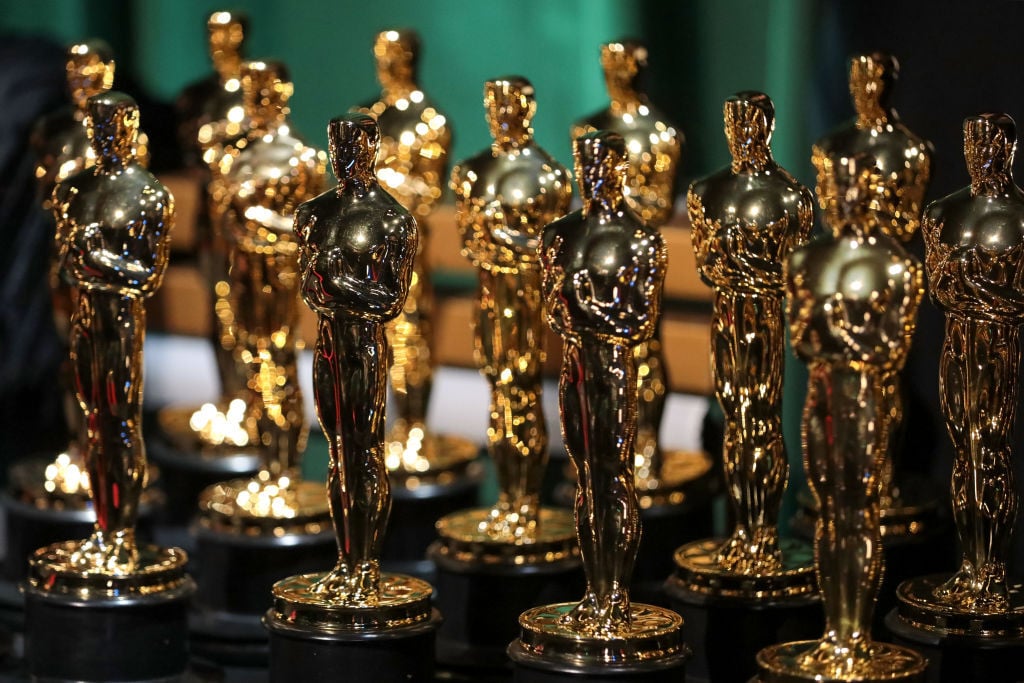Contents
The film Shattered Glass, which came out 20 years ago this fall, tells the story of Stephen Glass, a star writer for the New Republic who was fired in 1998 after Forbes reported he’d made up a story about a hacker convention in Bethesda. The resulting scandal shook the DC journalism world as well as the New Republic, which had to retract 27 stories. On the occasion of the movie’s anniversary, Washingtonian spoke to people involved in the movie, plus journalists portrayed in it. Glass, who now works for a law firm in Los Angeles, declined Washingtonian’s request for an interview.
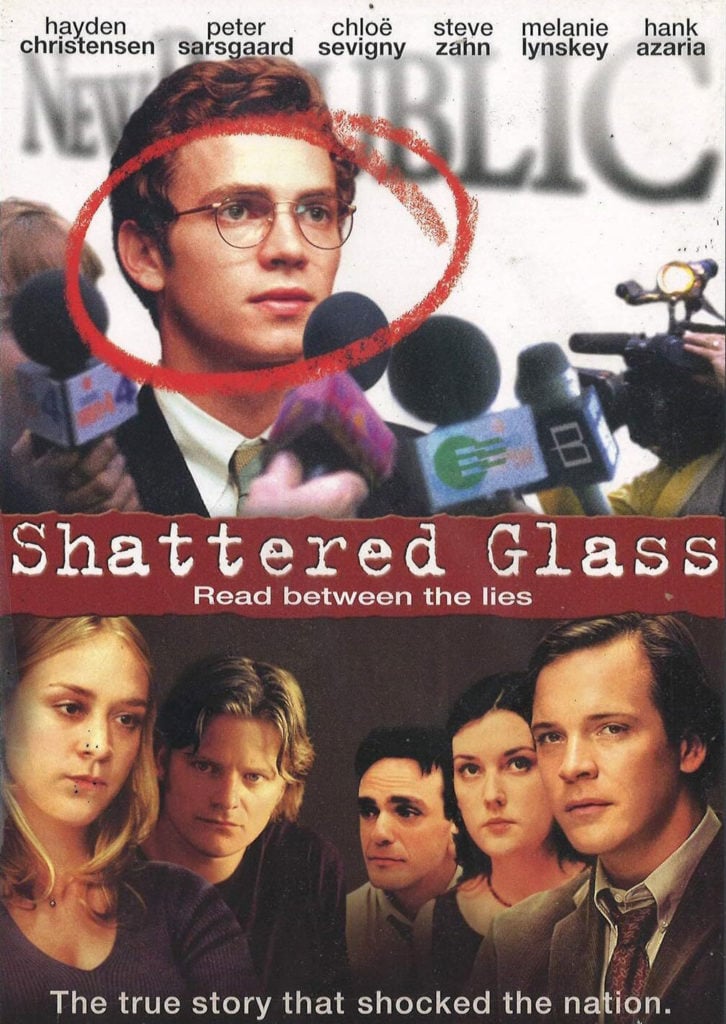
In September 1998, Buzz Bissinger published an article in Vanity Fair about the Glass fiasco. Hollywood producer Craig Baumgarten and HBO executive Gaye Hirsch acquired the rights. They asked Billy Ray, then a journeyman screenwriter, to write a screenplay for a potential HBO film.
Billy Ray, Shattered Glass writer and director: Craig Baumgarten, in our first meeting about it, said, “I want you to know you’re my second choice to write this. My first choice was Paddy Chayefsky, who’s dead.”
Charles Lane, former New Republic editor, now an opinion columnist for the Washington Post: I got a call from Billy Ray, who introduced himself and said he had been asked by HBO to do this screenplay. He came to Washington and looked around the New Republic. I heard nothing further. I just assumed the thing had died the usual Hollywood death.
Ray: While I was researching and writing, everybody at HBO was fired. Like, the entire administration was just gone. And they were replaced by a new administration that hadn’t ordered the script and didn’t care about it. So [it sat] for two years, and during those two years, I was working on other things and realized it was just time to find out if I could direct a movie.
After getting the rights back from HBO, the producers sent the film—with Ray now attached as director—to 22 studios. Twenty-one passed. Lionsgate said yes.
Ray: I knew I had to do it. I completely understood the part of Stephen Glass that was so desperate for praise and validation and that pat on the head—that nothing else mattered. And I completely understood the part of Chuck Lane that was sort of stiff and felt hidebound by rules.
“For me, from the start, the movie was always about what happens when the least popular kid in high school has to take down the most popular kid in high school.”
—Billy Ray
Jonathan Chait, former New Republic staffer, currently a columnist for New York: [Glass and I] were in the same intern class. I think it was a little unusual to hire someone out of a public university [Chait went to the University of Michigan]. The New Republic under Marty Peretz was—you know, if you were dipping down to someone who went to Yale, that was kind of a compromise. You had a series of responsibilities as an intern. You had to distribute the faxes. You had to do a lot of drudgery. You also had the chance to pitch stories and you could write them.
Margaret Talbot, former New Republic staffer, now a staff writer for the New Yorker: I have a very troubled relationship with my past at that magazine, and I think many people do—women especially. We appreciate how it honed our talents and our argument skills. It was a tough place, but it was also kind of fucked up in a lot of ways that I think would not be allowed to flourish today. As a result, there were so many psychological undercurrents and complex relationships and overvaluation of perverse argument that it made it harder to see someone like Steve clearly.
Glass soon got a full-time job in the magazine’s fact-checking department. As the movie shows, he was spellbinding in pitch meetings and also relentlessly self-deprecating.
Ray: That was the great gift that Buzz Bissinger gave me, which was [Glass always saying,] “Are you mad at me?” I knew I could hang an entire character on just that sentiment. It speaks to his fear, to his need to manipulate.
Talbot: [Glass] was so nice and accommodating, and we needed a fact-checker. I recall that I made the decision to hire him as a fact-checker. Which is really extraordinary. All I can say in my defense, sort of, is he was, as part of his MO, very good at fact-checking other people’s work.
Hanna Rosin, former New Republic staffer, currently host of a podcast for the Atlantic: He was a little bubble of delight and freedom. It’s a pretty intellectually intimidating atmosphere, particularly if you’re a kid, and particularly if you’re female. And so it’s heavy. You know, it’s like, what’s going on in Macedonia? And then there’s Steve, talking about some just madcap delightful incidents.
Chait: In retrospect, the clues were there. I once went out with [Glass] and his girlfriend and my then girlfriend, now my wife. [My girlfriend] told me she thought he was totally full of shit. That was the whole key: It was only people who knew him that were going to get taken in by him. He didn’t come across the way Hayden Christensen portrayed him, as slick and creepy.
Glass’s deceptions came to light when Forbes reporter Adam Penenberg tried to match the New Republic’s reporting in the story “Hack Heaven.”
Adam Penenberg, former reporter for Forbes’s website; now a professor at NYU: I was hired at Forbes because I was the only one who had online news experience, and I had done four months at Wired. We were like this little gang of ne’er-do-wells whose offices were up the street from the Forbes building, and the magazine wanted nothing to do with us. [Glass’s article] was only in the print edition. It wasn’t even available online. In 1998, Google didn’t even exist. They were founded that September. All we had was Yahoo.
The film portrays the New Republic when Lane was elevated to the top editor job after owner Marty Peretz fired Michael Kelly, a figure beloved by the staff. Unlike in the movie, Lane didn’t know Glass well, having spent six months before the film’s action on a fellowship.
Lane: I was there, but I wasn’t there. I was known, but not really known, and that’s an important wrinkle in the real-world events. That is not really clear in the movie.
Ray: [The New Republic staff] thought Chuck was humorless. They thought Stephen was the funniest thing in the world. They just loved him.
Talbot: It was a very sharp-elbowed, intellectually combative, contrarian, male place, and Steve always felt like this antidote to that atmosphere. The idea you could be a smart, gentle, self-deprecating person and also stumble into these amazing stories was kind of enchanting.
Chait: It was a completely accurate portrayal of the office politics. Billy Ray understood that as a necessary element of the story. Michael Kelly was this loved figure in the office, and this loving relationship may have been one of the reasons he was taken in by Steve Glass. Chuck Lane was distrusted by the staff, and I think that relationship enabled him to break with Steve Glass.
Ray: For me, from the start, the movie was always about what happens when the least popular kid in high school has to take down the most popular kid in high school.
“In retrospect, I can’t tell you how many people tell me, ‘I knew he was making stories up.’ But at the time, nobody had any idea.”
—Adam Penenberg
While Lane and Penenberg are characters in the film, Glass’s coworkers are composites. Chloë Sevigny’s character was largely based on Rosin, who was Glass’s friend. Melanie Lynskey plays a mixture of Chait and other staffers.
Rosin: I think it was a way of keeping us involved but at arm’s length. To have us sitting at the set and be like, “Hey, that is actually not what happened” would have been annoying. Once they got into moviemaking, I think they just needed to make a compelling movie.
Chait: I don’t know why they put this in the film, but I told Billy that I don’t drink [and] I had this complaint that when you went to a party, the soft drinks are always out on the table getting unchilled. Steve had put this soda in the freezer for me. That scene [ended up] in the movie. I was at my friend’s house for dinner this summer. He served me a room temperature soda and I said, “I don’t really like room temperature soda—I don’t know if you’ve seen the movie Shattered Glass.”
Penenberg: Billy Ray called me when I was on my honeymoon, and he said, “We’re casting Steve Zahn [to play you].” I had no idea who that was. I thought it was Steven Van Zandt, the guy from The Sopranos.
Lane: Billy told me that I was going to be played by Greg Kinnear. And then Kinnear dropped out and he got Peter Sarsgaard. I was very worried that this was somehow typecasting: It turns out that Peter had mostly played villains.
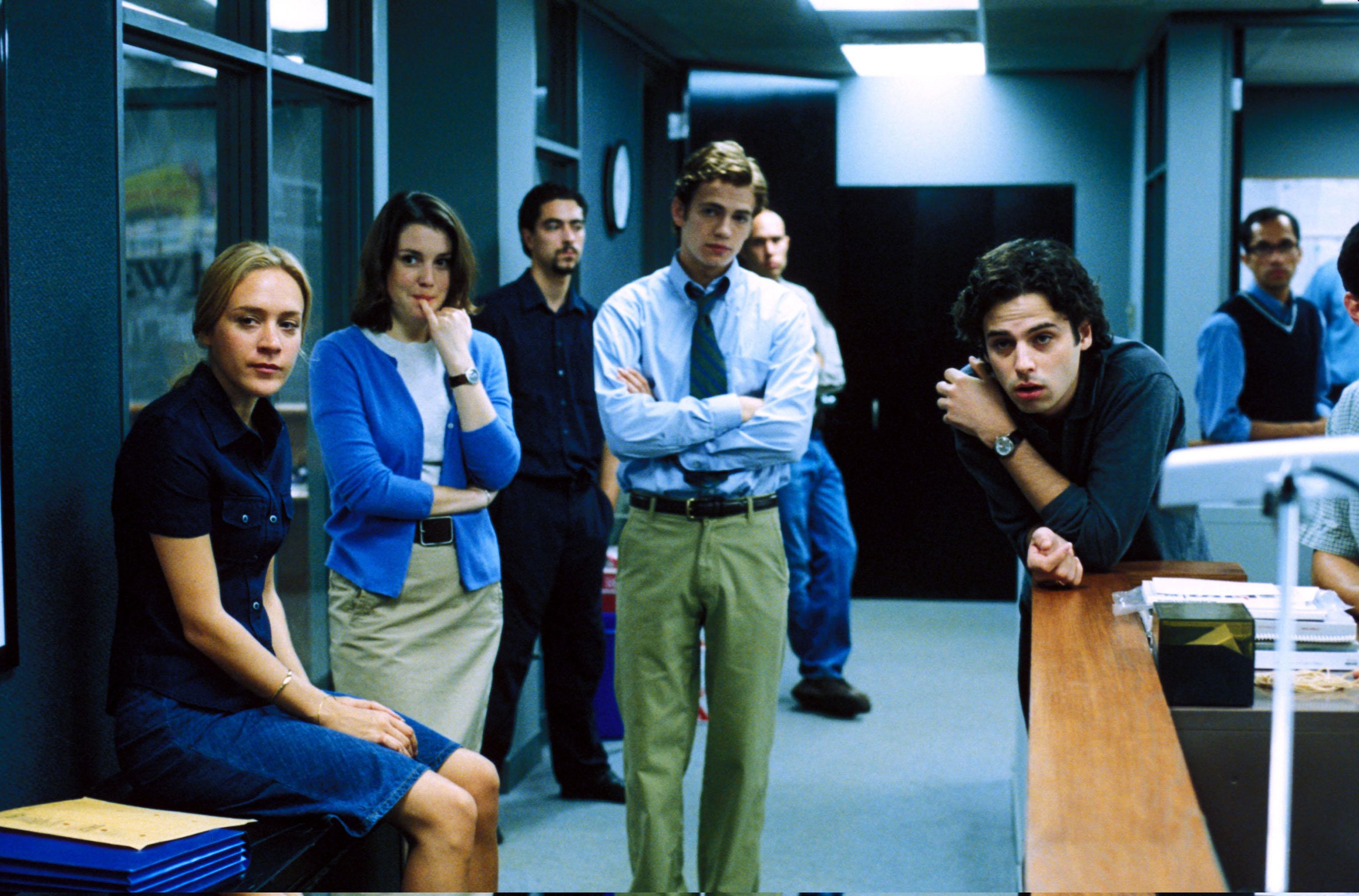
The movie has an unusual structure. Glass is the protagonist in the first half, when we see him trying to hold together a precarious career. Lane becomes the hero in the second half, when he confronts—and ultimately fires—Glass.
Ray: I’ve never done that before. I don’t recommend it to film students, to have one guy be the protagonist for the first half and another guy be the protagonist for the second half. But that’s what was required for that story. Because if you made Stephen the protagonist the whole way through, you’d want to kill yourself at the end of that movie. I didn’t want Chuck to be the bad guy.
Lane: One of the things that’s adept about Billy’s filmmaking is that he manages that change in point of view without disrupting the film.
Ray: The other thing is that halfway through the movie, not only just the protagonist shifts, but the movie starts to become about something else. In other words, for the first half of the movie, truth is just getting its brains beaten in. And in the second half of the movie, truth starts to take hold at the magazine. So the first half was shot handheld. And the second half of the movie we were on sticks or dollies so that you have this subconscious sense of, “Oh, things are getting rooted now.” No one’s ever asked me about it, which means it works.
Penenberg was unable to corroborate any of the details in “Hack Heaven,” which claimed that a large software company named Jukt Micronics had been blackmailed by a hacker. Forbes couldn’t find a website for Jukt or any business records in California, and important characters in the story seemed not to exist.
Penenberg: I don’t know how a story like that could have gotten published in the form that it was. So to me, it was a huge editorial fail. But the fact checkers were the ones who got blamed.
Penenberg and his editor, Kambiz Foroohar, had conference calls with Lane and Glass that turned increasingly adversarial as Glass was unable to produce supporting materials. Ray used recordings of those calls for the dialogue in the film.
Penenberg: I got to go up and watch him film in Montreal. They were filming the conference call scene, but [Zahn] wasn’t there [because at that time they were shooting the part at the New Republic office]. So I got to actually hear the dialogue and watch it from the Glass side. There was this one moment when Billy was directing and Hayden Christensen is doing Stephen Glass. Billy takes him aside and says, “I want you to play this scene as if you believe what you’re saying. I want you to fervently, truly believe that what you’re saying is true.” And it transformed his scene. I’d never watched a director work with an actor before and give them a note like that. That totally, completely changed the tenor of the scene and made it way better. That sticks out to me as a moment that I thought, “Wow, they’re really making a good movie here.”
Lane attended filming in Montreal, too.
Lane: One scene they were shooting that I’ll never forget was, there’s a moment in the movie where the whole staff sits around and talks about how much they hate Chuck Lane. Then it got even worse because they did five takes. Billy kept saying, “Okay, that’s great, but let’s try it again with a little, you know, more emphasis on what a jerk he is.”
Ray: We shot in Montreal, and we [filmed] a day or two in Washington. We were in a white van driving through DC without a permit and shooting stuff. It happened to be at the time of the DC sniper, who was [reported, incorrectly, to be] in a white van. I told my producer, “I’m shutting this down. We’re not doing this anymore.” And he said, “Yes, we are. We have one day to do this. Get back in the van.”
Part of what makes Shattered Glass so effective is the way the actors are able to convey what’s happening beneath the surface.
Lane: I’ve always told people that Peter deserves an Oscar for making Chuck Lane seem like a sympathetic character. Because that is a tremendous acting challenge. He didn’t capture, like, [the real] Chuck Lane. But he captured what Chuck Lane was going through in that episode very well. He, with a lot of nonverbal acting, portrayed how it gradually began to dawn on me what I was dealing with. And, you know, the rest is show business.
Chait: Hank Azaria played Michael Kelly. I think the point of that role was the deep personal connection that Mike had with the staff at the time. He absolutely nailed that. Hank Azaria was built like a football player, and Michael Kelly was built like a football. That was a Hollywood glow-up for Michael Kelly.
Penenberg: [Steve Zahn] called up and he was exactly like the characters he plays in the movies. He was like, “Adam, this is Zahn. So when I get to do you—or, I mean, me; I mean, us—in this movie about that asshole Steve Glass…” And then I’m waiting for the big windup. It sounds like he’s got some serious questions here. And then he basically asked, “What were you wearing?”
When the film was finished, everyone depicted in it had to go through the bizarre experience of seeing someone portray them on screen.
Lane: It is an out-of-body experience. I compared it to having somebody tickle you. It’s just a very strange, uncomfortably pleasant experience.
Chait: The Melanie Lynskey character was a composite that was partially based on me. She had no sense of humor. That was the opposite of the case. I got the job because I wrote funny stuff.
Ray: I didn’t want to composite Penenberg. But I did want to composite [some of the] reporters at the New Republic. I just didn’t feel like it was necessary to name people who had been sucked in by Stephen, who had unwittingly wound up co-authoring pieces with him. They didn’t need public embarrassment like that. So it was just as effective to composite them.
Rosin: [Chloë Sevigny] did nail my way of dressing, which she deeply complained about. She definitely complained about the lame clothes she had to wear, which were my clothes.
In the movie, the internet is barely part of anyone’s life. That allowed Glass to gild his lies: He created a fake website, for example.
Lane: Steve was pretty smart with the technology at the time, and was, you know, using these paid services that allowed you to set up voicemails with phone numbers from all over the country and make up this kooky website and things like that. And I was a step behind him. And then Forbes was a step ahead of Steve because they were real web experts and knew how to use search engines. I actually wrote a column along these lines years later, that the real lesson of this was because facts can be checked so quickly now, this is going to make fabrication and journalistic fraud much, much rarer. Obviously I did not anticipate what was coming in terms of deep fakes, AI, Photoshop, Twitter, everything that has made faking all kinds of things much easier and checking them that much more challenging. So the real lesson, I guess, is that there’s this neverending arms race between the people who want to fake and the people who want to catch them. And this case might have been the first one of the digital age of journalism.
Talbot: The internet was so new then, and he was adept at it in a way that a lot of people weren’t yet. So there was always this sort of thought like, Oh maybe he found this online.
Chait: What everyone says about him is he was this brilliant writer who couldn’t report any facts. The truth is he actually was not a good writer at all. Every time he had to turn in a piece, he would show it to me first and say, “This is a disaster—what should I do?” I would perform some triage emergency surgery to get it into form, and Michael Kelly would rewrite it.
Talbot: I think people projected things on him. I projected things on him like, Oh he knows about the mysterious internet and I don’t even know how to go online. I think everybody had their ways in which they imagined that he was better than them in particular ways.
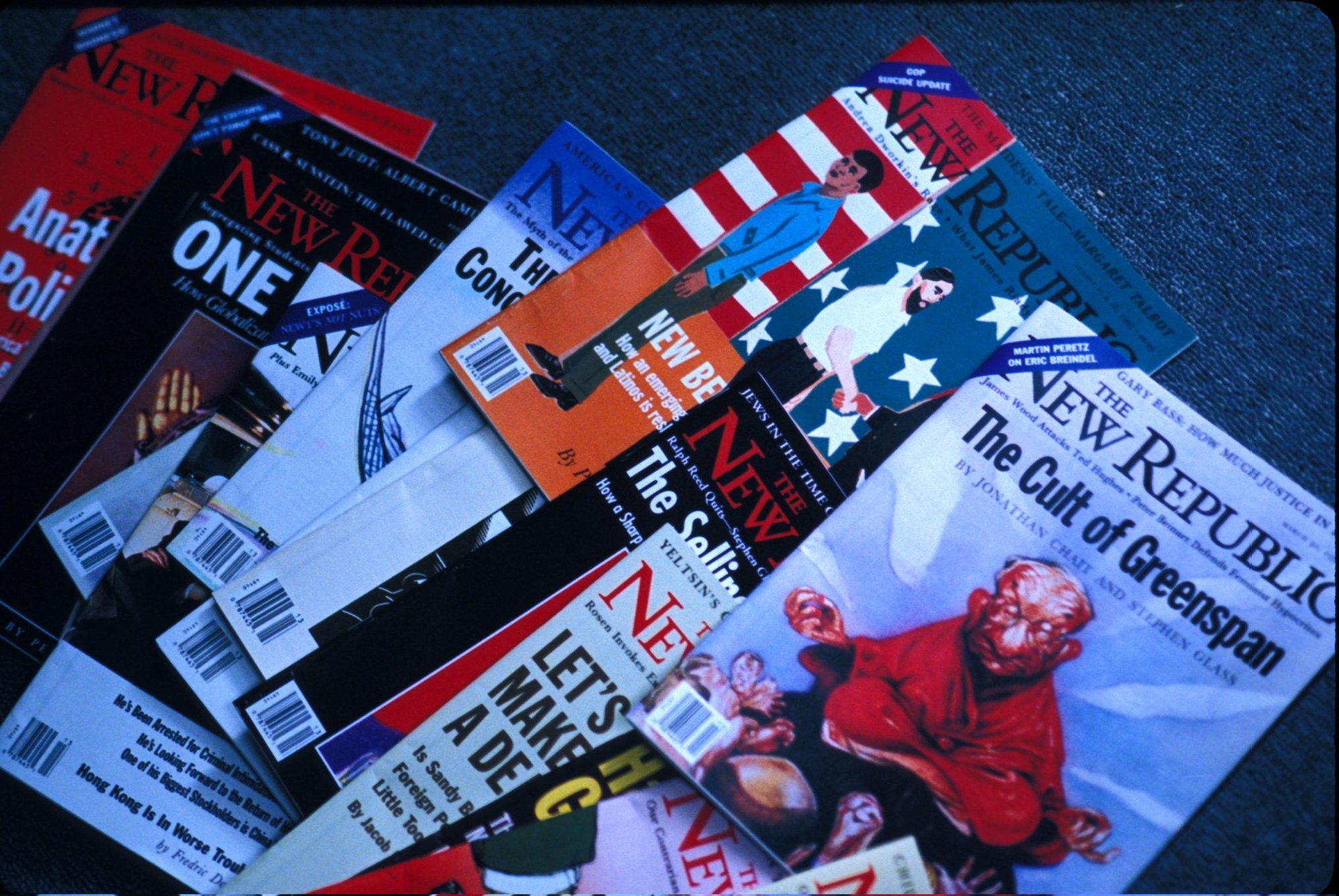
The film’s drama comes to a head when Lane brings Glass to the site of the supposed hacker convention in Bethesda. (Though some exteriors were filmed in DC and Maryland, the bulk of the movie was shot in Canada). As it all unravels, Christensen’s Glass tries browbeating Sarsgaard’s Lane, then pleads with him, then apologizes, then finally admits to inventing the scenes there.
Lane: It’s very, very, very, very close to what really happened. And candidly, at this point, I am having difficulty remembering exactly what happened because my memory has sort of been overwritten by the movie’s portrayal of what happened.
Ray: Stephen would tell the kind of lie that would buy him another 24 hours. And then when that ran out he would tell a lie that would buy him another 12 and he would just keep figuring it out.
Ray’s commitment to accuracy—even when scenes were invented—impressed some of Glass’s former coworkers.
Lane: Billy did a tremendous amount of good-faith effort to nail down particulars that would make the film have verisimilitude: what people like to wear to the office, what kind of photographs people had on their desks, where the couch was positioned in my living room at home, all those things that would lend credibility to individual shots.
Ray: If you’re doing a story about fraudulence in journalism and you tell it in a fraudulent way? Well, then shame on you.
Lane: Of course, there are complete fantasy scenes, like Stephen Glass wandering through a Monica Lewinsky memorabilia convention that didn’t take place. The reason I think that works is that in the end, the essence of the story is truthful. He gets the big things accurate about the moral outcome of the case, the tendencies of human psychology that it illustrated.
Penenberg: The great thing about the movie from Forbes’s side is that it’s really accurate. Because Billy Ray actually put on a journalism hat. He went out there and interviewed people. He checked facts. And he actually corrected the record in some ways, which is pretty ironic.
Ray: Everything in there is completely true to the spirit of events. Was there a moment where Stephen Glass and Chuck Lane stood at the wall while Chuck Lane was putting magazines back? No. But that’s a metaphor for Chuck Lane putting the magazine back together while Steve Glass is trying to pull him away from that wall.
Chait: It got the big elements of the story totally right. In terms of capturing the culture of the place, I don’t feel like it was representative. Billy Ray is a very earnest person, and he portrays the staff in earnest terms. You have people taking themselves very seriously: “We’re the New Republic, we’re the in-flight mag of Air Force One.” That’s really the opposite of the ethos of the place, which was very much outsider, casual mocking of the seriousness of the Washington establishment. We didn’t wear sports coats very often. We didn’t make a lot of money. We weren’t close to powerful people. It was more like a Spy magazine kind of thing.
Penenberg: It certainly conveyed what we did accurately. There were a few things that are not true. But that’s fine—I can understand why as a filmmaker he decided to do that. For example, I never followed any Forbes editor into a bathroom to update them on a story. I never had any question about a byline being shared with anybody. There was no Rosario Dawson character. Rosario Dawson was a composite of a lot of people with Forbes who helped with the story a lot.
Rosin: In the movie, you are aware of Hayden Christensen’s anxiety from the beginning. So it wasn’t a pleasure to be in his company the way it was such a pleasure to be in Steve’s company. For us who knew Steve, what was missing was the genuine delight of being entertained by someone you thought was this figure who walked upon the Earth and delightful, hilarious things happened to them.
Talbot: Sometimes you see movies about journalism and it feels not really recognizable. There’s too much pipe-laying. Overall, it felt like, Oh, I recognize this. I recognize this place. This mood. These kind of people.
Glass has only commented a bit on the film. In 2003, he told the New York Times that watching it was “like being on a guided tour of the moments of my life I am most ashamed of.”
Ray: [Glass] wouldn’t talk to me; I reached out through his lawyer. And I think they took the request seriously, but they decided ultimately not to help me.
Lane: Steve and I were not friends. We weren’t enemies. And maybe that’s one reason I was sort of able to have a critical distance about him. But this wasn’t like I was betrayed by a close friend. This was the institution I worked for that was betrayed by a colleague, and not just the institution I worked for but, at the time, the institution I was supposed to be managing.
Shattered Glass holds up surprisingly well for a movie about an era that would likely confound many people under 30.
Penenberg: In retrospect, I can’t tell you how many people tell me, “I knew he was making stories up.” But at the time, nobody had any idea. At first, it was truly shocking. Then five years later, when [New York Times staffer] Jayson Blair got busted for crimes probably far worse, people weren’t shocked anymore. I feel like Glass was the beginning of people really turning on media. There was a lot more cynicism five years later.
Lane: I’ve said this many times: I just don’t know what to believe about Steve. It’s a very definitive thing to personally experience that level of gaslighting from somebody. I don’t wish ill of Steve. I don’t wish him particularly well, either.
Ray: Prior to Shattered Glass, my career was a complete embarrassment to me. I had my name on movies that weren’t at all mine, and one or two that hadn’t worked at all, and none of my favorite scripts had yet been made. I felt like I was making zero contribution to the business or the culture. It got so bad that I was thinking of quitting and becoming a fireman. Shattered Glass changed all that, forever. It was a movie I could stand behind 100 percent. And I still do.
A version of this article appears in the October 2023 issue of Washingtonian.
